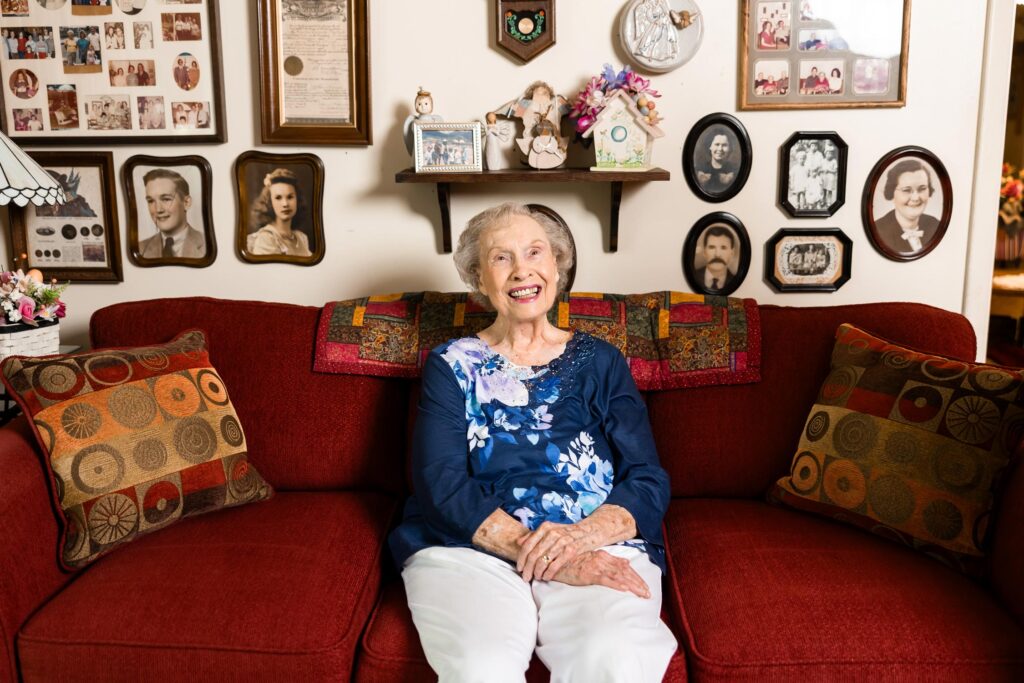Caring for an aging loved one at home can feel overwhelming. You want them safe, comfortable, and happy, but finding the right care can be confusing. Do they need personal care, skilled nursing, or just companionship? What about costs and financial aid? Fortunately, there are many options. We’ll break down elderly home care assistance, costs, funding sources, and how to choose the best support for your family.
Key Takeaways:
- Types of Elderly Home Care:
- Personal Care Assistance: Helps with dressing, bathing, and eating (non-medical support).
- Skilled Medical Home Care: Includes wound care, therapy, and medications (requires licensed professionals).
- Homemaker & Companion Services: Focus on cleaning, meals, errands, and social interaction.
- Costs of Elderly In-Home Care Assistance:
- Costs vary based on the level of care—personal support is typically more affordable than skilled care.
- Short visits add up, and 24-hour care is the most expensive.
- Exploring options can help find the right fit for your needs and budget.
- Government Assistance:
- Medicaid covers personal and skilled care for eligible seniors.
- Medicare provides short-term medical care at home.
- State programs & VA benefits may offer additional financial aid.
- Family Caregiver Payment Options:
- Medicaid waivers & CDASS allow seniors to hire family caregivers.
- VA caregiver programs provide stipends for caregivers of veterans.
- Legal & tax considerations apply when receiving payments.
- Respite Care & Short-Term Assistance:
- Adult day program costs vary by setting and services—adult day programs and in-home care are common options.
- Medicaid, VA benefits & nonprofit organizations may help cover costs.
- Home Safety Modifications:
- Grab bars, non-slip mats, good lighting, and secure flooring reduce fall risks.
- Smart home devices (alerts, cameras, automatic shut-offs) improve safety.
- Some Medicare, Medicaid, and VA grants help pay for modifications.
- Choosing the Right Senior Caregiver:
- Check license, background checks, experience, and training.
- Key questions: Caregiver qualifications, emergency procedures, and costs.
- Agencies should allow care plan adjustments and backup caregivers.

The Different Types of Elderly Home Care Assistance
Personal Care Assistance for Seniors
Some seniors need help with daily tasks such as dressing, bathing, and eating. This type of in-home elderly assistance does not include medical care, but it helps seniors remain safe and comfortable. Caregivers assist with mobility, toileting, and simple household chores.
Personal care agencies hire trained aides to provide this support. While a medical license is not required, most states mandate training. Some families hire caregivers privately, but agencies assist with background checks and hiring.
Skilled Medical Home Health Care
Some seniors need medical care at home. Skilled home health services include wound care, injections, physical therapy, and medication management. These must be provided by licensed medical professionals such as nurses or therapists.
A doctor often needs to authorize skilled home care. Medicare and Medicaid cover specific medical services when prescribed by a physician. Private insurance may contribute, but coverage varies.
Skilled home health agencies must comply with state and federal regulations. Their staff may include registered nurses, physical therapists, and home health aides with specialized training. Consequently, for seniors with complex health conditions, skilled home care may be the best choice.
Homemaker and Companion Services
Some seniors manage daily tasks independently but need help with chores or companionship. Homemaker and companion services focus on non-medical assistance such as cleaning, cooking, and errands. Companions also provide social engagement, which helps reduce loneliness and depression.
Unlike personal care aides, companions do not assist with bathing or toileting. Their support includes grocery shopping, meal preparation, and transportation to appointments. Many families seek companion care when a senior can live alone but benefits from extra support.
Medicaid and veteran programs sometimes cover homemaker services for eligible seniors. Private pay is common, but nonprofit organizations may connect seniors with affordable options. Families seeking homemaker assistance can check government resources for financial help.
The Cost of In-Home Elderly Assistance
Home care costs vary by location and level of care. Personal care services, which include help with daily living tasks, typically cost $23 to $30 per hour. More specialized care, such as wound treatment or physical therapy, costs more due to the required medical expertise.
Many agencies require a four-hour minimum per visit, leading to costs of $92 to $120 per visit. If round-the-clock care is needed, expenses may reach $700 per day, depending on how many caregivers are involved.
Affordable Senior Care Solutions
For seniors with limited budgets, several cost-saving options exist. Firstly, Medicaid may cover in-home care for eligible individuals, reducing or eliminating out-of-pocket costs. Additionally, the Elderly, Blind, and Disabled (EBD) Waiver provides support for those requiring long-term care.
When it comes to private pay, families can lower expenses by hiring independent caregivers instead of going through an agency. Moreover, some states offer Consumer-Directed Attendant Support Services (CDASS), which allows seniors to hire family members as paid caregivers.
Furthermore, community and nonprofit organizations may provide low-cost or free home care assistance. These groups often support seniors with companionship services, light housekeeping, or help with transportation.
By exploring these various options and resources available for senior home care assistance, families can find affordable solutions that meet their loved ones' needs while ensuring their safety and comfort at home.
Comparing Private and Government-Supported Costs
Private caregiving services often offer more flexibility but at a higher price. Agencies determine hourly rates based on caregiver qualifications and service levels. Hiring independently can save money, but families must handle background checks, payroll, and tax considerations.
Government programs, including Medicare, cover short-term medical care but not long-term personal care. Medicaid, however, may fund both personal and medical home care for those who qualify. State-based programs also provide financial support, which can ease caregiving expenses.
Government Aid for Elderly Home Care Assistance
Medicaid and Medicare Coverage for Home Care
Medicaid covers home care for seniors meeting income and health criteria. It includes both personal and skilled nursing care and is often more affordable than a nursing home. Some Medicaid programs allow seniors to hire family members as caregivers.
Medicare, on the other hand, primarily covers short-term home health care following hospitalization. Firstly, Medicare Part A pays if a doctor deems home care necessary after a medical event. Medicare Part B provides ongoing home health benefits but does not cover personal assistance.
Many states offer assistance for seniors choosing home care through Medicaid waiver programs, which fund in-home support instead of institutional placement.
State Assistance Programs
Beyond Medicaid and Medicare, some states provide extra financial help, caregiver support, and home modification assistance. Home and Community-Based Services (HCBS) waivers may include personal care, meal delivery, and transportation.
Some states also assist low-income seniors with medication costs and doctor visits. Programs like Consumer-Directed Attendant Support Services (CDASS) allow seniors to choose their own caregivers, including family members.
Elderly Home Care Grants and Subsidies
Grants and subsidies can ease the financial burden for those who do not qualify for Medicaid. Charitable organizations, religious groups, and nonprofit entities may fund personal care, home renovations, or safety modifications. Veterans may receive financial aid through the Department of Veterans Affairs.
Some states have home care allowances offering small subsidies for personal care needs. These funds complement Medicare or Medicaid but depend on income limits.
Local aging offices can provide information on grant availability, as benefits may vary by location and financial status.
Finding the right care for an aging loved one requires careful planning. Understanding available care options, costs, and financial assistance programs helps families make informed decisions. Many government programs provide vital support, and some families can even receive compensation for caregiving efforts. Short-term respite care and home safety improvements also ease daily challenges.
Choosing a trustworthy care provider ensures quality assistance and peace of mind. Investing time in research, asking the right questions, and exploring assistance programs can make a difference in ensuring the best care possible for seniors and their families.
Elderly Home Care Assistance You Can Trust
Caring for an aging loved one can be overwhelming, but you don’t have to do it alone. CareLink offers personalized home care assistance, ensuring seniors receive the support they need while maintaining their independence. Let us help your family find the right care solutions. Get in touch now to explore your options.





